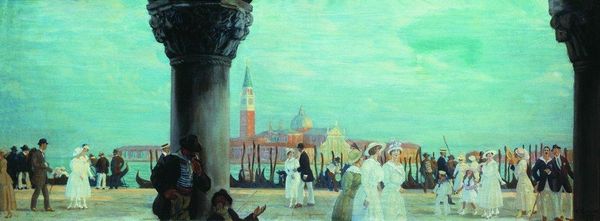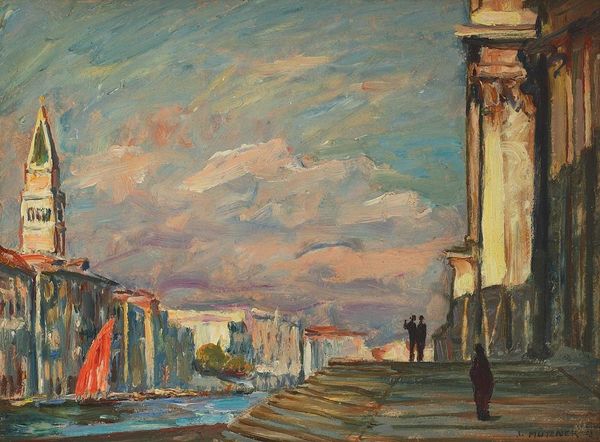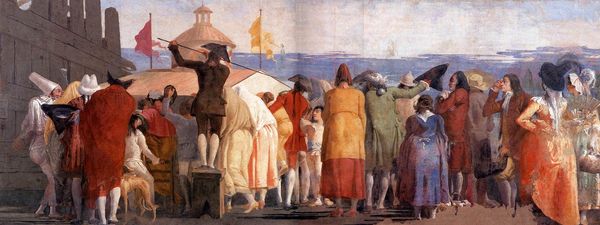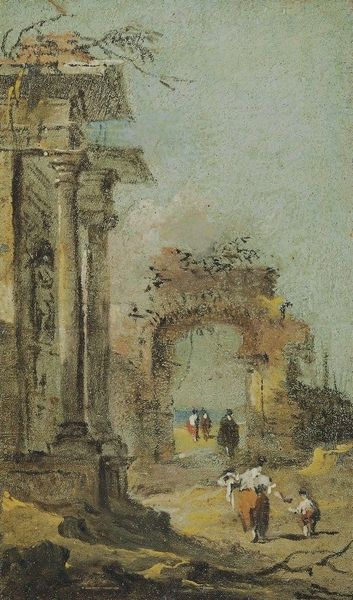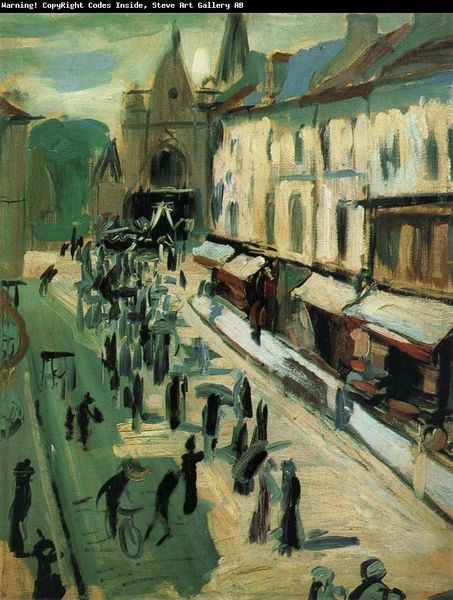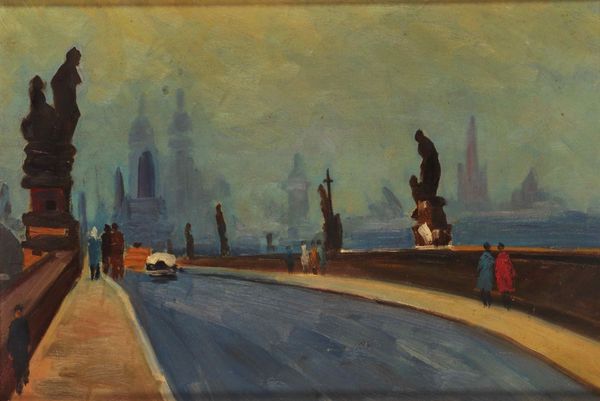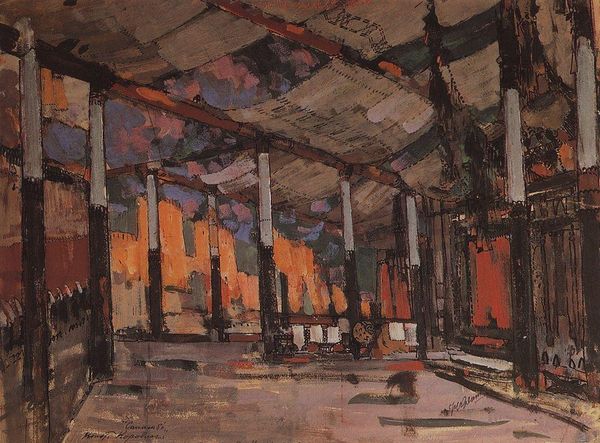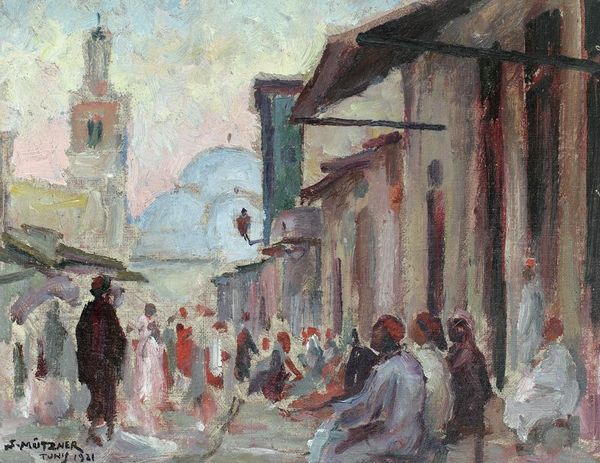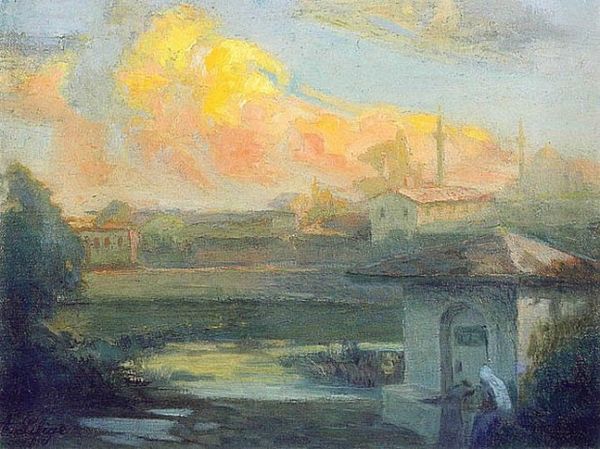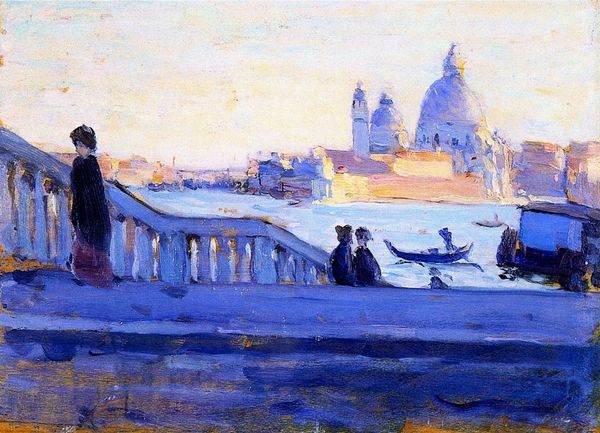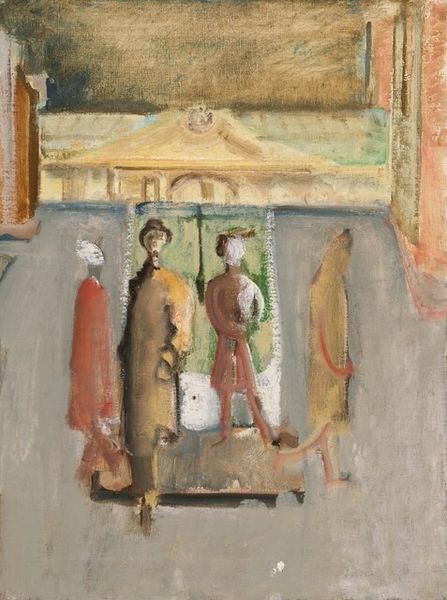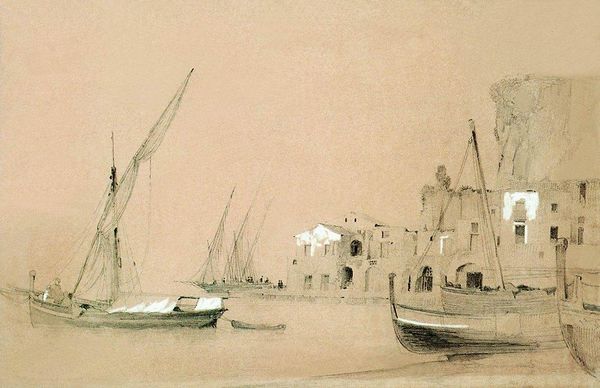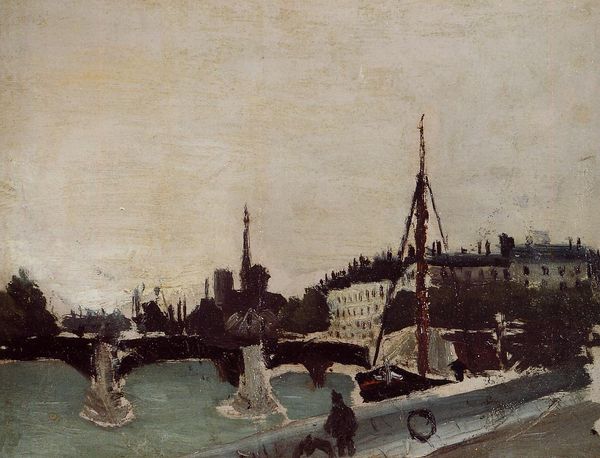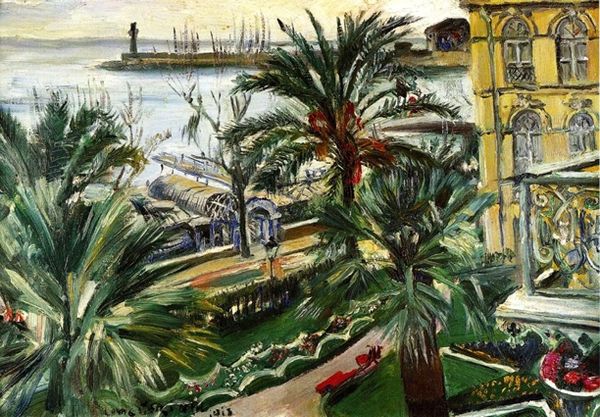
Copyright: Public domain
Editor: So, we're looking at "Venice. Memory," an oil painting by Boris Kustodiev, created in 1918. There's a hazy quality to it, almost dreamlike, with figures strolling along what appears to be a Venetian waterfront. It feels nostalgic, perhaps a little melancholic. What jumps out at you when you see it? Curator: It whispers, doesn’t it? Like a faded postcard discovered in grandma’s attic. I see more than just Venice; I sense a yearning. Kustodiev painted this while grappling with serious illness. Could Venice be less about the actual place, and more about a vibrant past he's struggling to hold onto, a symbol of vitality slipping away? Do you feel that fragility in the brushstrokes themselves? Editor: That's interesting. I was so focused on the soft colours and implied narrative that I didn’t immediately think about the artist's personal context. There’s almost a contrast – the beauty of the scene and the somber circumstances. Curator: Exactly! Consider the muted tones, the slightly blurred edges. It's impressionistic, yes, but with a layer of something… wistful, even. Look at the figures, how they seem to float, barely anchored to the ground. Memory, especially when coloured by illness, is like that, isn't it? Fleeting, fragmented. What is one element you want to capture if you paint what is in your memory? Editor: I guess I see it as the way figures fade as if they’re not really ‘there.’ Almost ghostly, suggesting how our recollections dim over time. The arches framing the scene also seem like portals or a theater stage. Curator: Yes, and think about that theater – life itself perhaps? A stage upon which Kustodiev is remembering his most precious acts before the curtain falls. Perhaps even our own lives! What has painting taught us about viewing our future or past with clarity, and not with fog? Editor: It's really made me think about how much an artist's personal experiences shape their work, and how what looks like a pretty cityscape can be so much more complex. Thanks for showing me that. Curator: My pleasure! Hopefully, it will leave everyone who looks at this painting a little less passive and instead makes them become creative in seeing things we would have not previously understood without each other.
Comments
No comments
Be the first to comment and join the conversation on the ultimate creative platform.
